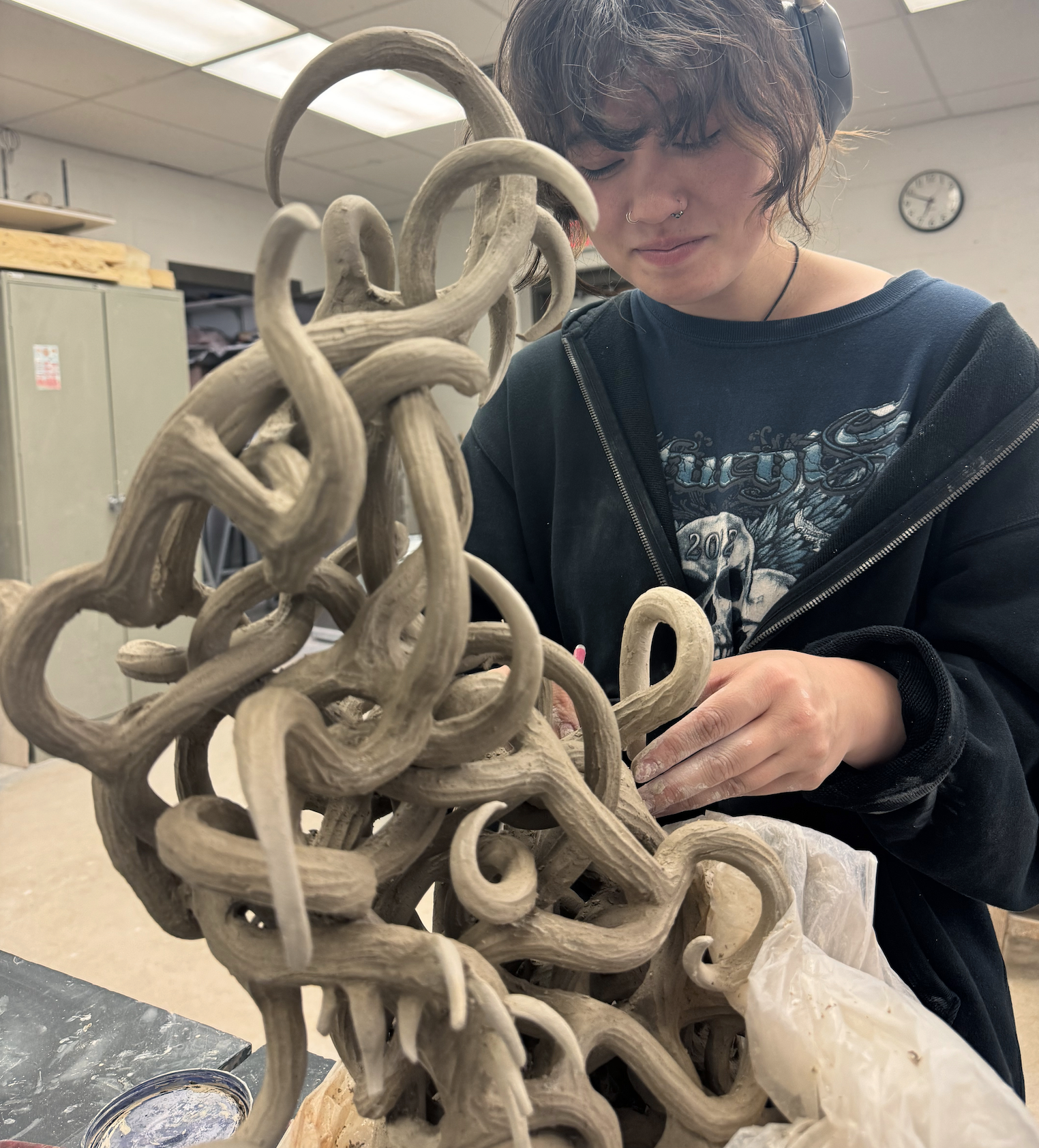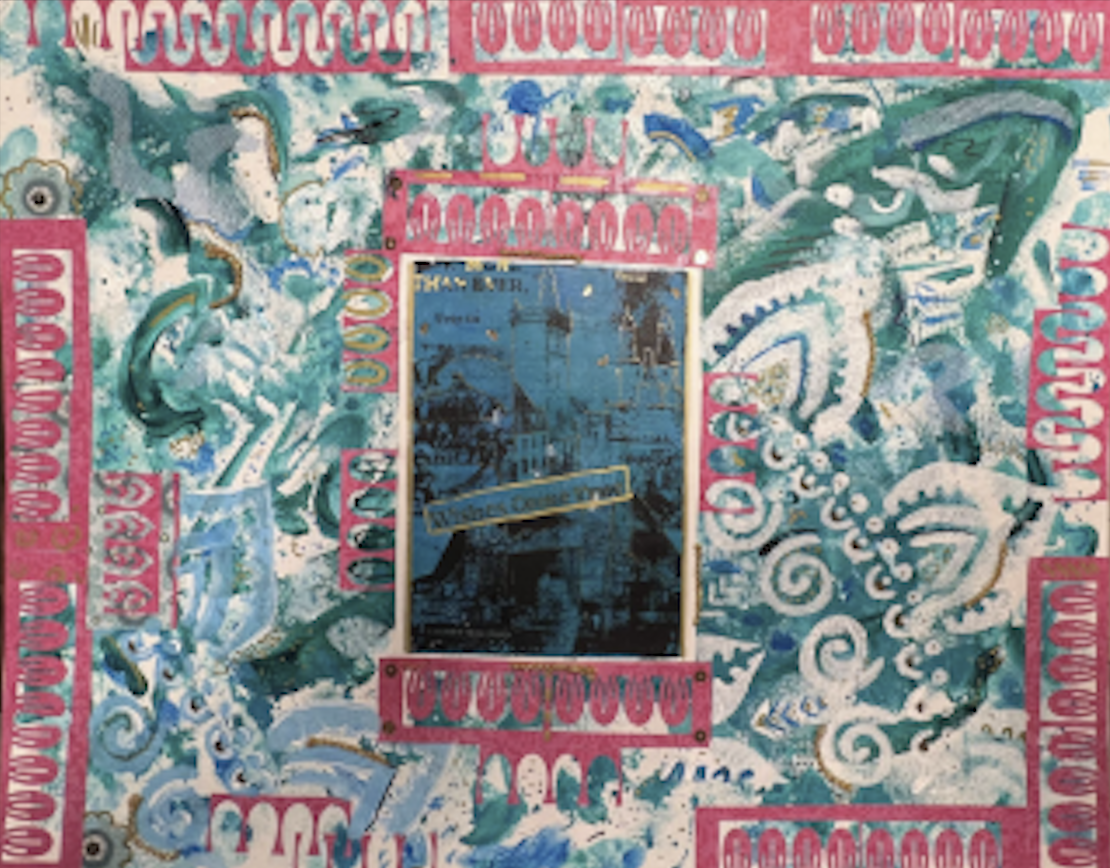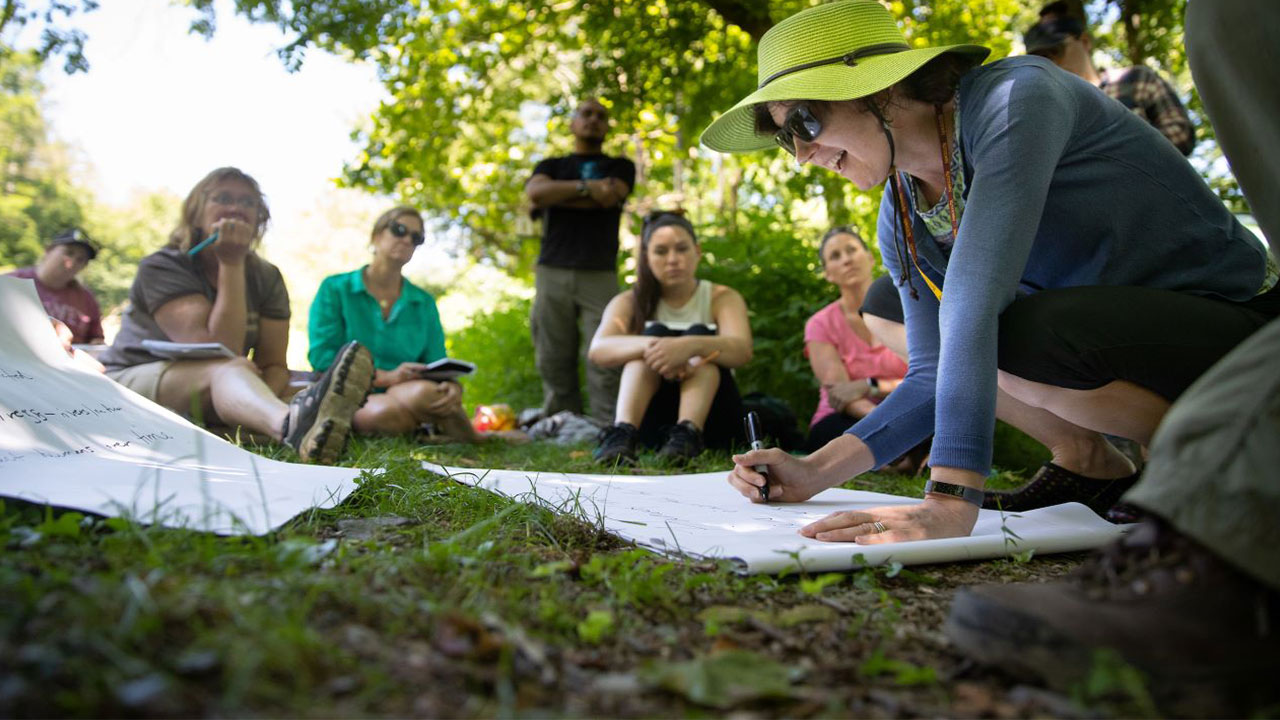Summer Institutes
2026 SUMMER INSTITUTES
The Summer Institutes for Art Educators are held in the summer months that correspond to public school summer vacation schedules. The Institutes provide intensive one to two-week instruction in art education and related fields of study. The Institutes connect students with community resources and visiting artists/scholars. The Institutes are designed to provide in-depth experiences that are unavailable through regular coursework.
Registration Opens March 18th
-
Tuition, Fees and ACT 48
2026 Institute ACT 48 Hours and Fees
ART 561: Trial by Fire: The Ceramic Transformation
June 15th - June 26th 12pm - 5pm Onsite
Professional Development Survey
ARED 571 : Artists as Partners in Pedagogy: Conversations in Making and Meaning
July 6th - July 9th 8am - 4pm Onsite
July 10th - August 6th Online Course*
Professional Development Survey
Workshop Fee $400.00
**Tuition and fees are subject to change without notice **
Resident
Non-Resident
Graduate Tuition – 3 credits
$TBD
$TBD
Technology Fee – 3 credits
$TBD
$TBD
Instructional Service – 3 credits
$TBD
$TBD
Total
$TBD
$TBD
Housing
4 nights $207.75
5 nights $237.75
All online courses must be taken with the corresponding workshop
Information is subject to change without notice
Payment information: https://www.kutztown.edu/affordability/bills-and-paying-your-tuition.html
Online courses are available to in-person workshop participants only. To take the online course you must also take the workshop.
Available Courses:

Trial by fire: the ceramic transformation
Professor gwendolyn yoppolo
June 15th - 26th Onsite
12pm - 5pm
Working with clay is an elemental process that integrates feeling and thought, touch and sight, and past and present. As we move from inspiration to design, through the making process and the changes of the firing, we materialize our vision, align our hands and eyes, and evolve our ideas and goals. As we transform our materials, we also transform the way we perceive and undertand the world. In turn, our artwork changes the people around us by evoking emotion, delivering poetic metaphor, making connections to cultural histories, and resonating senti/ments.
In this two-week studio-based workshop, we will explore ancient and contemporary forming methods such as pinching, coiling, slab building, wheel throwing, prototyping, molding, and digital technologies in ceramics. Integrating surface design into our making process will help us convey expressive meaning and create unified artworks. We will use drawing, writing, and collaborative dialogue to clarify the thoughts, inspirations, and emotions that we embody in our artwork. Blending risk-taking creativity with a critical consciousness within a supportive learning community will ensure a transformative experience for participants during this workshop.
- - - - - - - - - - - - - - - - - - - - - - - - - - - - - - - - - - - - - - - - - - - - - - - - - - - - - - - - - - - - - - -

Artists as Partners in pedagogy: conversations in making and meaning
Dr. Julia L. Hovanec
July 6th – 9th Onsite
July 10th - August 6th Online
8:00am – 4:00pm
This immersive four-day institute invites art educators to explore the intersection of artistic practice and teaching through partnership, conversation, and creative process. Each day centers on the idea of connection between artists and educators, materials and meaning, process and pedagogy. Participants will engage in hands-on mixed-media studio encounters led by visiting artists and a faculty facilitator, discovering how artistic partnerships can inspire curriculum, community, and connection.
Through open studio time, visiting artists, reflective dialogue, and a local field experience, participants will consider how the artist's studio and the art room can inform one another in mutually enriching ways. The accompanying online course provides sppace for deeper reflection, continued artmaking, and the design of curriculum inspired by the institute experience. Participants will leave with renewed creative energy, a broadened understanding of artistic partnership, and strategies for weaving these connections into their teaching, learning, and own artistic practice.
- - - - - - - - - - - - - - - - - - - - - - - - - - - - - - - - - - - - - - - - - - - - - - - - - - - - - - - - - - - - - - -
- - - - - - - - - - - - - - - - - - - - - - - - - - - - - - - - - - - - - - - - - - - - - - - - - - - - - - - - - - - - - - -
We hope you will join us in the Department of Art Education at Kutztown University this summer!
ACT 48 hours will be available!







